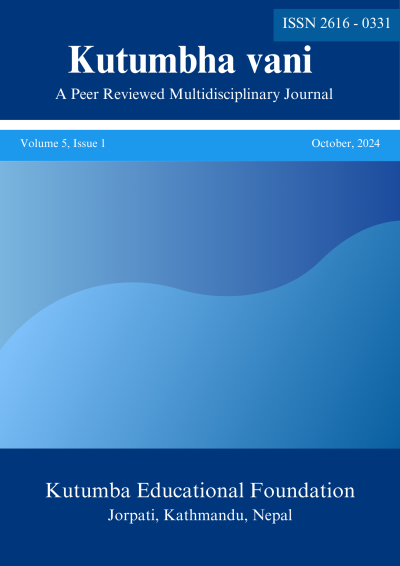Utilization Postnatal Care Services in Hyolmo Community
DOI:
https://doi.org/10.3126/kv.v5i1.70979Keywords:
Postnatal, Care, Hyolmo, Service, UtilizationAbstract
Postnatal care (PNC) utilization among the Hyolmo community highlights significant gaps in existing literature and underscores the critical need for targeted healthcare interventions in remote and ethnically distinct populations. This study reveals that, while considerable attention is given to urban and accessible rural populations, remote communities face unique challenges that can impede access to essential maternal health services. The results demonstrate that age, education, and socio-economic factors significantly influence PNC uptake, suggesting disparities that are compounded in remote areas like the Helambu Rural Municipality of Sindhupalchowk District. This study shows that younger mothers, often less aware or hindered by accessibility barriers, are less likely to utilize PNC services compared to their older counterparts. This disparity highlights the necessity for community-specific educational programs that can enhance understanding and encourage the use of PNC services among younger women. Additionally, the influence of education and socio-economic status on PNC utilization points to the broader implications of systemic inequities in healthcare access. Moreover, the study brings to light the role of cultural practices and beliefs in shaping healthseeking behaviors, which varies significantly across different communities. In the traditional beliefs may conflict with modern healthcare practices, there is a clear need for culturally sensitive health interventions that respect and integrate local customs and practices. This research not only contributes to a deeper understanding of the factors affecting PNC service uptake in a specific Nepalese community but also calls for comprehensive policy responses. By addressing the multifaceted challenges faced by the Hyolmo community ranging from geographic isolation to cultural and educational barriers the study advocates for a holistic approach to healthcare. This should include the development of policies that ensure equitable access to health services, enhance community health education, and promote cultural competence among healthcare providers. Ultimately, such efforts are essential for improving maternal and infant health outcomes in remote communities, ensuring that every individual, regardless of their socio-economic or cultural background, has access to the necessary postnatal care.




